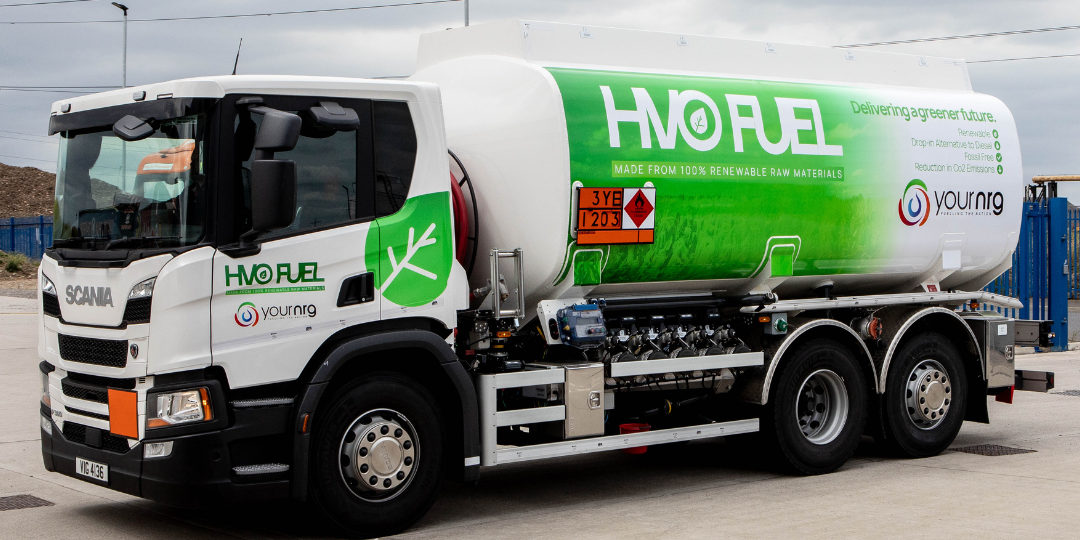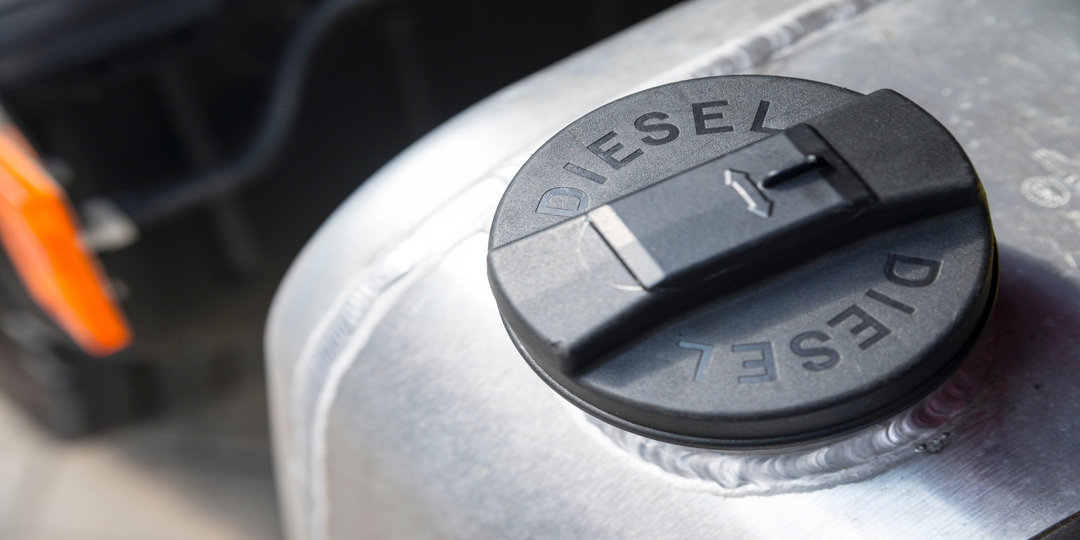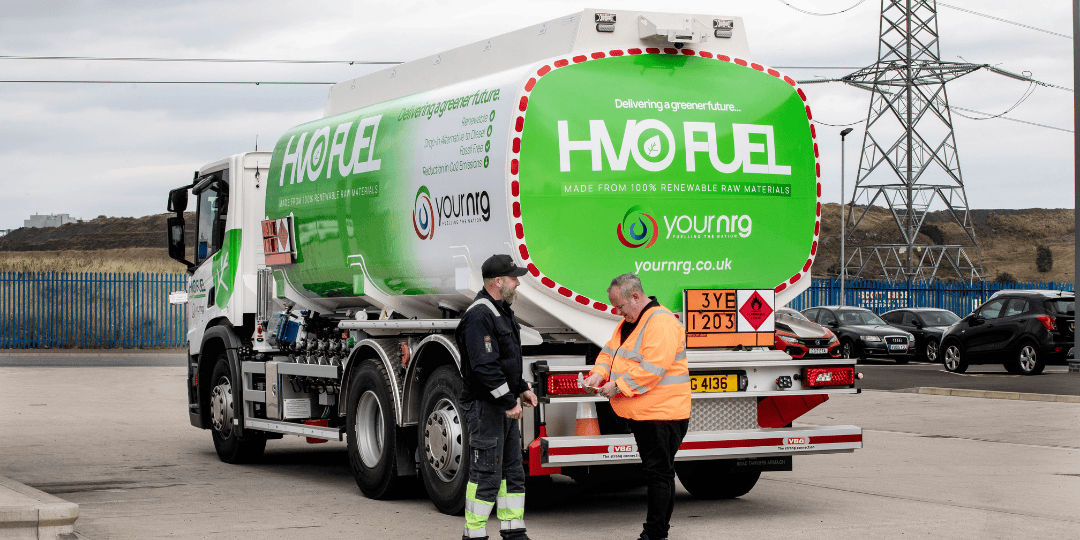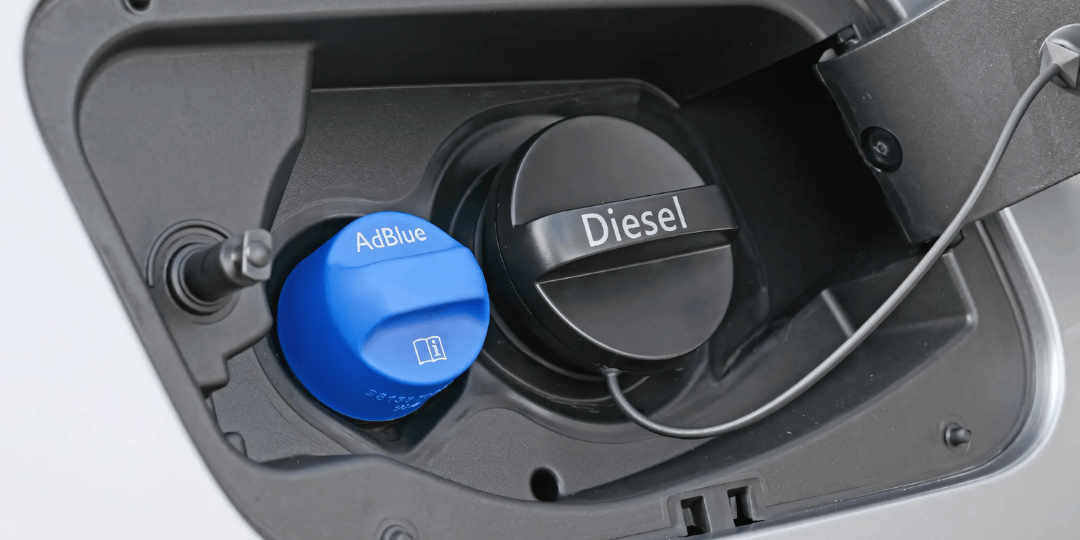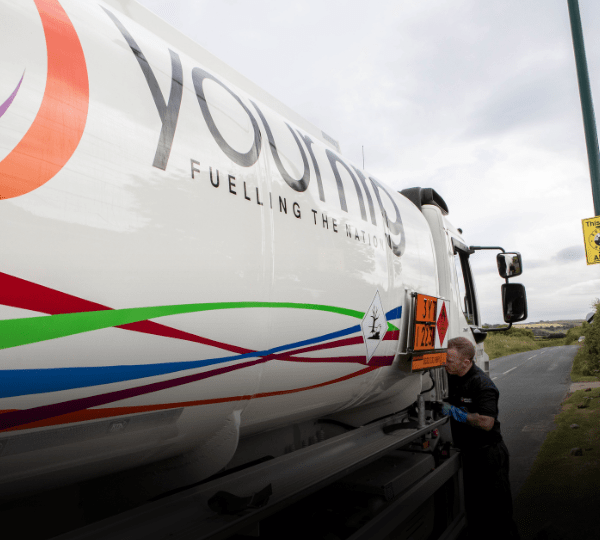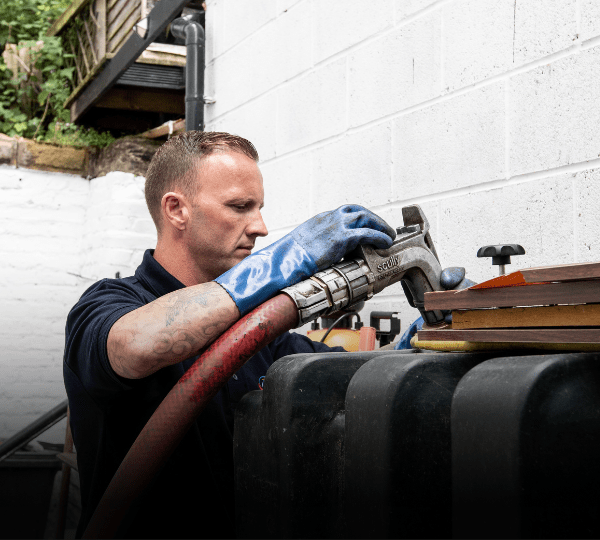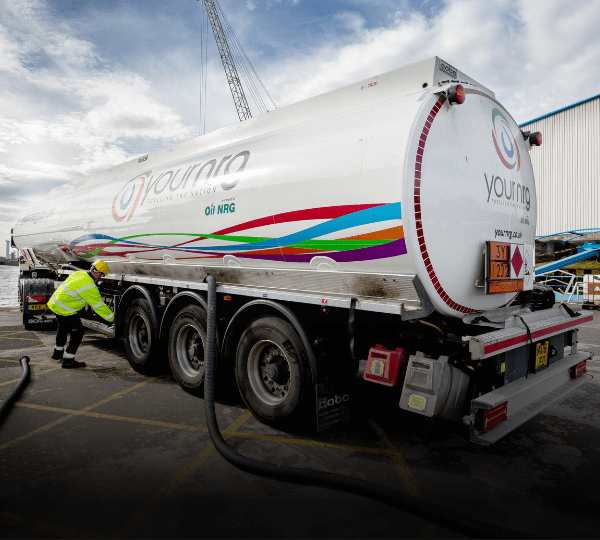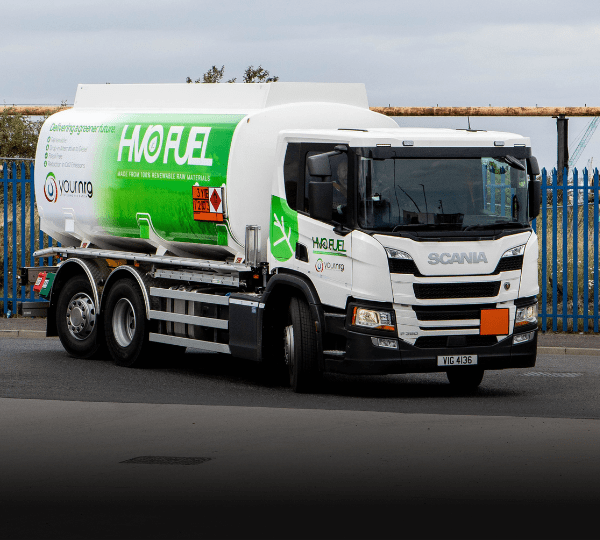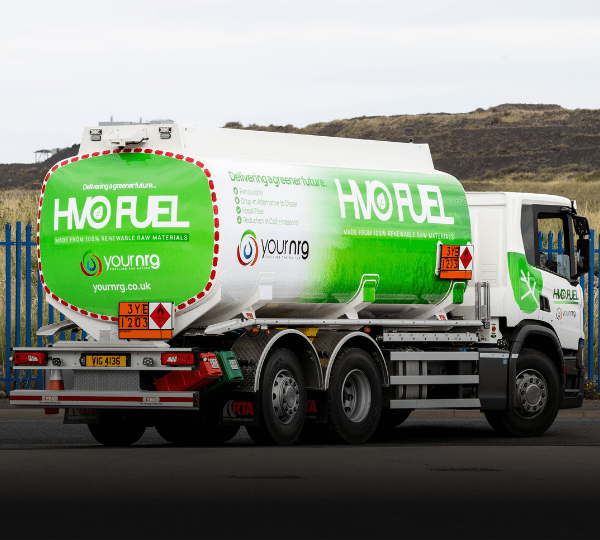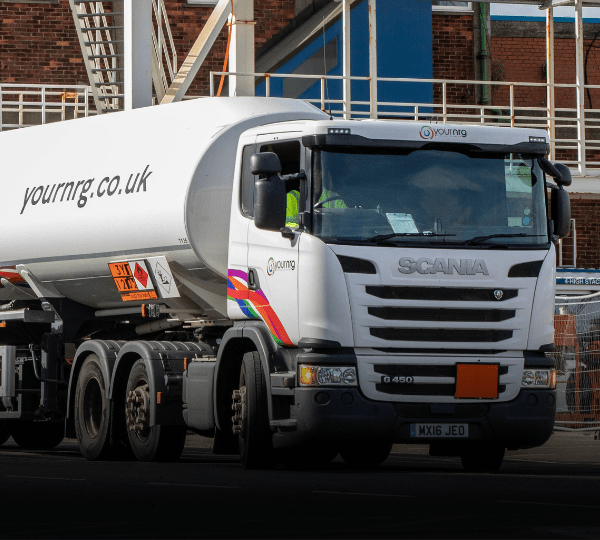But Hydrotreated Vegetable Oil (HVO) is a simple, drop-in alternative to diesel without any of the hassle or downtime. It’s clean-burning, compatible with most diesel engines, and can help slash emissions without changing a single thing on your site or fleet.
Here’s what makes HVO Fuel worth considering and why more UK businesses are making the switch.
Key Takeaways
- What is HVO Fuel?
- What are the benefits of HVO Fuel?
- Is HVO Fuel sustainable?
- Does HVO give better MPG?
- How much is HVO per litre?
- Is HVO cheaper than diesel?
- What are the negatives of HVO Fuel?
- Get your HVO Fuel quote from Your NRG
- HVO Fuel FAQs
What is HVO Fuel?
HVO (Hydrotreated Vegetable Oil) is a synthetic renewable diesel alternative made from waste cooking oil, animal fats, and other sustainable raw materials. It’s classed as a drop-in fuel, which means it can replace conventional diesel in most engines with no modifications. Unlike biodiesel, HVO is refined using hydrogen (not methanol), giving it a stable, high-quality structure that performs like standard diesel, even in cold conditions.
Did you know? HVO Fuel is certified to EN 15940, the European standard for paraffinic diesel fuels, ensuring quality, consistency, and performance.
What are the benefits of HVO Fuel?
HVO Fuel comes with several advantages as a drop-in diesel alternative, including less environmental impact and better engine performance.
HVO Fuel offers massive emissions reductions
HVO Fuel can reduce greenhouse gas emissions by up to 90% compared to regular fossil diesel. It also cuts:
- NOx (nitrogen oxide) emissions by up to 27%
- Particulate matter by up to 33%
- Carbon monoxide by up to 24%
This makes it a great choice for businesses working toward Net Zero goals, reducing carbon footprint, or operating in Clean Air Zones.
HVO Fuel is better for your engines
HVO Fuel burns cleaner than regular white diesel, which results in fewer mineral deposits left in engines, reduced wear on injectors, and more time needed between servicing. Because HVO Fuel also contains virtually no sulphur or metals, it also helps protect engine components and exhaust after-treatment systems, making it ideal for modern diesel engines in commercial fleets, construction machinery, and standby generators.
Is HVO Fuel sustainable?
Yes, HVO Fuel is considered a highly sustainable alternative to diesel, especially when made from 100% waste-derived feedstocks like cooking oil and animal fats that would otherwise go to landfill or be incinerated. HVO Fuel can cut greenhouse gas emissions by up to 90% over its lifecycle compared to fossil diesel.
Does HVO give better MPG?
HVO Fuel’s energy content is around 3–5% lower than fossil diesel, which technically means slightly less power per litre. But because it burns cleaner, it often leads to more efficient combustion, especially in well-maintained engines. In real-world use, fuel consumption is usually comparable, and any slight trade-off is often offset by reduced maintenance costs.
How much is HVO per litre?
The price of HVO per litre usually ranges from £1.10 to £1.40, depending on order volume, order location, and current market conditions.
Want an accurate price for your HVO Fuel? Get a fast custom quote based on today’s rate per litre, with Your NRG’s reliable delivery, competitive pricing, and expert support included as standard.
Is HVO cheaper than diesel?
HVO is currently not cheaper than standard diesel. It costs around 10–15% more per litre, depending on volume and delivery location. But many businesses find this is made up for through reduced engine servicing costs, longer storage life, and its higher sustainability credentials.
According to the UK’s Renewable Transport Fuel Obligation (RTFO) stats, demand for HVO Fuel and other renewable diesel alternatives is rising steadily year-on-year.
What are the negatives of HVO Fuel?
The main drawbacks of HVO Fuel include:
- Slightly higher cost per litre
- Still not universal across all UK depots, though demand is growing.
- Sustainability depends on the feedstock source. Not all HVO Fuel is created equal (that’s why we only supply HVO Fuel made from 100% waste, no palm)
But for many businesses, the upsides - especially lower emissions and long storage life - outweigh the costs.
Get your HVO Fuel quote from Your NRG
Whether you manage plant machinery, agricultural kit, haulage fleets, or power generation, HVO Fuel offers a low-disruption route to cleaner operations.
We supply 100% renewable HVO fuel across the UK, with reliable on-site deliveries and sector-specific advice from our expert team. All sourcing and supply chain records are independently audited through the Renewable Fuels Assurance Scheme (RFAS), giving you full traceability and confidence in every drop.
Get in touch today to secure your supply at a price that works for your budget.
HVO Fuel FAQs
What is HVO made from?
HVO is made from renewable feedstocks, including used cooking oil, waste animal fats, and other non-palm waste residues. These feedstocks go through a hydrotreatment process to remove impurities and saturate the hydrocarbons. This makes HVO a clean fuel that delivers consistent performance while cutting reliance on fossil fuels.
How long can HVO be stored?
Standard diesel starts to degrade after 6–12 months, even with additives. HVO Fuel can last up to 10 years in clean, dry storage thanks to its paraffinic structure and lack of oxygen bonds that cause oxidation. That makes HVO ideal for:
- Standby generators
- Seasonal machinery
- Backup fuel tanks on construction or farm sites
Does HVO last longer than diesel?
Yes, HVO Fuel lasts significantly longer than regular diesel – up to 10 years in proper storage conditions. Standard diesel typically lasts around 6-12 months before it starts to degrade. It’s a paraffinic fuel with no oxygen, so it doesn’t oxidise or absorb water like mineral diesel. It’s also resistant to microbial growth, known as ‘diesel bug’, when kept in clean, sealed tanks.
